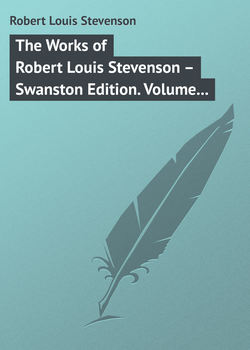Читать книгу The Works of Robert Louis Stevenson – Swanston Edition. Volume 24 - Robert Louis Stevenson - Страница 56
VII
THE RIVIERA AGAIN – MARSEILLES AND HYÈRES
To Sidney Colvin
ОглавлениеThe allusions in the second paragraph are to the commanders in the Nile campaigns of those years.
La Solitude, Hyères, 9th March 1884.
MY DEAR S. C., – You will already have received a not very sane note from me; so your patience was rewarded – may I say, your patient silence? However, now comes a letter, which on receipt, I thus acknowledge.
I have already expressed myself as to the political aspect. About Grahame, I feel happier; it does seem to have been really a good, neat, honest piece of work. We do not seem to be so badly off for commanders: Wolseley and Roberts, and this pile of Woods, Stewarts, Alisons, Grahames, and the like. Had we but ONE statesman on any side of the house!
Two chapters of Otto do remain: one to rewrite, one to create; and I am not yet able to tackle them. For me it is my chief o’ works; hence probably not so for others, since it only means that I have here attacked the greatest difficulties. But some chapters towards the end: three in particular – I do think come off. I find them stirring, dramatic, and not unpoetical. We shall see, however; as like as not, the effort will be more obvious than the success. For, of course, I strung myself hard to carry it out. The next will come easier, and possibly be more popular. I believe in the covering of much paper, each time with a definite and not too difficult artistic purpose; and then, from time to time, drawing oneself up and trying, in a superior effort, to combine the facilities thus acquired or improved. Thus one progresses. But, mind, it is very likely that the big effort, instead of being the masterpiece, may be the blotted copy, the gymnastic exercise. This no man can tell; only the brutal and licentious public, snouting in Mudie’s wash-trough, can return a dubious answer.
I am to-day, thanks to a pure heaven and a beneficent, loud-talking, antiseptic mistral, on the high places as to health and spirits. Money holds out wonderfully. Fanny has gone for a drive to certain meadows which are now one sheet of jonquils: sea-bound meadows, the thought of which may freshen you in Bloomsbury. “Ye have been fresh and fair, Ye have been filled with flowers” – I fear I misquote. Why do people babble? Surely Herrick, in his true vein, is superior to Martial himself, though Martial is a very pretty poet.
Did you ever read St. Augustine? The first chapters of the Confessions are marked by a commanding genius: Shakespearian in depth. I was struck dumb, but, alas! when you begin to wander into controversy, the poet drops out. His description of infancy is most seizing. And how is this: “Sed majorum nugae negotia vocantur; puerorum autem talia cum sint puniuntur a majoribus.” Which is quite after the heart of R. L. S. See also his splendid passage about the “luminosus limes amicitiae” and the “nebulae de limosa concupiscentia carnis”; going on “Utrumque in confuso aestuabat et rapiebat imbecillam aetatem per abrupta cupiditatum.” That “Utrumque” is a real contribution to life’s science. Lust alone is but a pigmy; but it never, or rarely, attacks us single-handed.
Do you ever read (to go miles off, indeed) the incredible Barbey d’Aurévilly? A psychological Poe – to be for a moment Henley. I own with pleasure I prefer him with all his folly, rot, sentiment, and mixed metaphors, to the whole modern school in France. It makes me laugh when it’s nonsense; and when he gets an effect (though it’s still nonsense and mere Poëry, not poesy) it wakens me. Ce qui ne meurt pas nearly killed me with laughing, and left me – well, it left me very nearly admiring the old ass. At least, it’s the kind of thing one feels one couldn’t do. The dreadful moonlight, when they all three sit silent in the room – by George, sir, it’s imagined – and the brief scene between the husband and wife is all there. Quant au fond, the whole thing, of course, is a fever dream, and worthy of eternal laughter. Had the young man broken stones, and the two women been hard-working honest prostitutes, there had been an end of the whole immoral and baseless business: you could at least have respected them in that case.
I also read Petronius Arbiter, which is a rum work, not so immoral as most modern works, but singularly silly. I tackled some Tacitus too. I got them with a dreadful French crib on the same page with the text, which helps me along and drives me mad. The French do not even try to translate. They try to be much more classical than the classics, with astounding results of barrenness and tedium. Tacitus, I fear, was too solid for me. I liked the war part; but the dreary intriguing at Rome was too much.
R. L. S.
